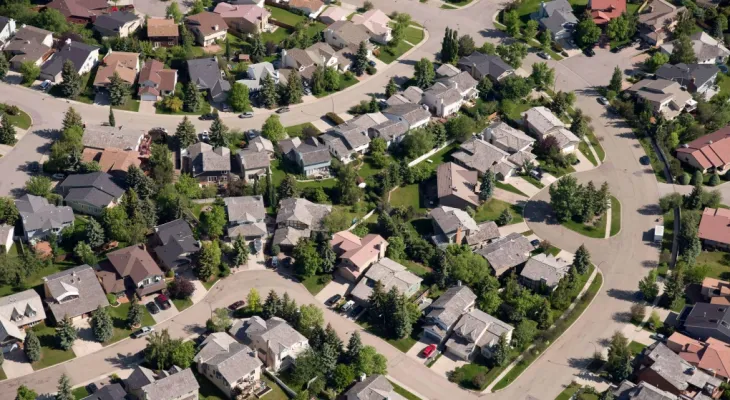Search here
Newspaper
Search here

Arab Canada News
News

Published: April 7, 2024
House Speaker Steven MacKinnon said the federal government is now doing "more than its fair share" when it comes to addressing the housing crisis in Canada.
MacKinnon described housing as an “urgent national priority” in an interview with CTV Question Period host Vassy Kapelos, which aired Sunday.
He said, "That’s why you have seen over the past two weeks, ministers and the prime minister going across the country, working with cities, provinces, community groups and others on addressing this priority on a slice-by-slice basis.”
Since March 27, the federal government has unveiled measures to be included in the federal budget on April 16, many of which aim to boost the housing supply.
Some of these measures include a $400 million increase to the Housing Accelerator Fund, a new $6 billion Canada Housing Infrastructure Fund, and a $15 billion increase to the apartment building construction loan program.
However, some premiers have already objected to the latest housing announcements because much of the money comes with conditions and standards that provinces must meet.
Jason Nixon, Alberta’s Minister of Seniors, Community and Social Services, said: “This is a huge overreach by the federal government to intervene and try to nationalize housing.”
To receive money from the new Canada Housing Infrastructure Fund, provinces must require municipalities to allow the development of four-unit residential dwellings, known as fourplexes. In some cases, these buildings can be up to four stories high without changing building codes.
Ontario Premier Doug Ford recently spoke out strongly against fourplexes and urged all levels of government on Wednesday to remain within their jurisdictions.
Ford told reporters in Vaughan, Ontario, “I’ll leave that to each municipality to decide because they know better than the province and the federal government.”
Last August, Prime Minister Justin Trudeau said housing is mostly the responsibility of the provinces.
Trudeau said, "I’ll be frank as well — housing is not a core federal responsibility. It’s not something we deal with directly.”
When Kapelos asked whether the recent housing announcements issued by the federal government were in response to declining public opinion polls for the Liberals,
MacKinnon replied, “What the prime minister also said is that the federal government will be there with the tools, programs, and resources needed to do its part, and I would say that we are actually now doing more than our fair share regarding carrying the weight of this problem.”
According to Statistics Canada, housing starts have declined since 2021, and new forecasts released by the Canadian Mortgage and Housing Corporation (CMHC) on Thursday indicate that this trend is expected to continue this year before recovering in 2025 and 2026. The same report also predicts that new homes could match peak levels seen in early 2022 by next year and even surpass those prices by 2026.
The federal government acknowledged that its latest housing measures will take years to impact the supply of homes and affordability. When Kapelos asked if there were any short-term tools regarding immigration possible to help ease demand, MacKinnon said there would be no changes to Canada’s permanent immigration targets.
Adding, “Regarding our regular immigration program, no, we will continue with that because that is what demographers and others say is needed in the long-term interests to fund pensions, healthcare, and things Canadians value.”
The Liberals have set targets leading to 485,000 immigrants this year and 500,000 in 2025 and 2026.
The federal government faced criticism earlier this year after the Canadian Press — citing internal documents obtained through Access to Information requests — reported in January that the federal government had been warned by public servants two years ago that its ambitious immigration targets could jeopardize housing affordability.
Two weeks later, Immigration Minister Marc Miller announced plans to reduce the number of international student permits by about 35 percent from 2023 levels. Then, in late March, Miller announced that Canada would set a “soft cap” on the number of temporary resident arrivals, with targets to be set in September.
MacKinnon was also asked how the federal government plans to pay for recent housing initiatives while also facing a $40 billion deficit in the 2023-2024 fiscal year. He did not say whether Canadians could expect new taxes, such as a wealth tax, to help generate revenue.
He said, “I’ll let the finance minister speak to her own budget.”
Comments